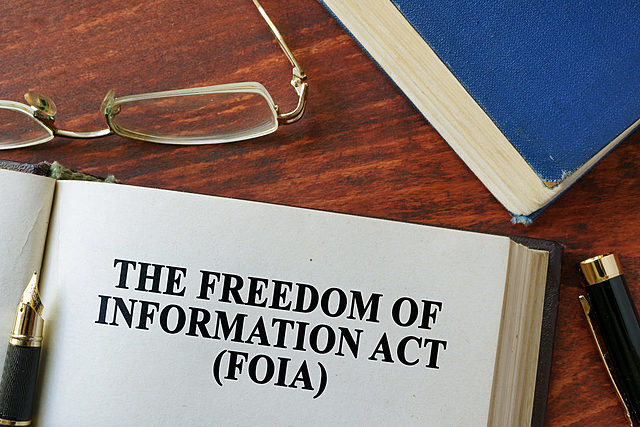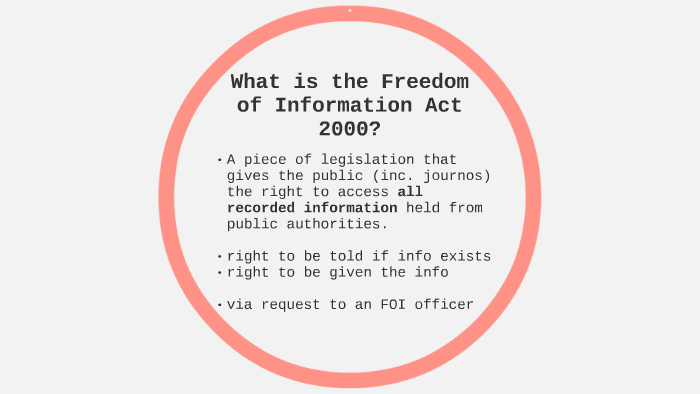
The Freedom of Information Act (FOIA) is a federal law that was enacted on July 4, 1966, by the United States Congress. The act provides the public with the right to access information held by federal agencies.
The Purpose of the FOIA

The FOIA was enacted to promote transparency in government activities and to enhance public participation in the democratic process. The act aims to ensure that the public has access to information that is necessary to make informed decisions about their government.
What Information Can Be Requested Under the FOIA?
Under the FOIA, members of the public can request any records that are held by federal agencies. This includes records that are created or obtained by the agency, as well as records that are under the control of the agency.
How to File a FOIA Request

To file a FOIA request, individuals must submit a written request to the relevant federal agency. The request should identify the specific records that are being requested and provide the requester's contact information. In some cases, a fee may be charged for processing the request.
Exemptions to the FOIA

While the FOIA provides the public with broad access to federal records, there are some exemptions that allow agencies to withhold certain types of information. These exemptions include information that is classified for national security reasons, information that would violate personal privacy, and information that is confidential or privileged.
How the FOIA Has Been Used
The FOIA has been used by journalists, researchers, and members of the public to obtain information on a wide range of topics. Some notable examples include the release of the Pentagon Papers, which revealed the government's handling of the Vietnam War, and the release of documents related to the Watergate scandal.
The Impact of the FOIA

The FOIA has had a significant impact on government transparency and accountability. By providing the public with access to government records, the act has helped to uncover instances of government waste, fraud, and abuse. It has also helped to promote public trust in government by allowing citizens to see how their tax dollars are being spent.
Recent Developments in FOIA Law

In recent years, there have been several developments in FOIA law. In 2016, President Obama signed the FOIA Improvement Act, which made several changes to the FOIA process. These changes included the establishment of a FOIA ombudsman to mediate disputes between requesters and agencies and the requirement that agencies provide electronic copies of requested records whenever possible.
Conclusion
The Freedom of Information Act has played an important role in promoting transparency and accountability in government. By providing the public with access to government records, the act has helped to uncover instances of government waste, fraud, and abuse. While there are exemptions to the FOIA, the act has been instrumental in promoting public trust in government and ensuring that citizens have the information they need to participate in the democratic process.